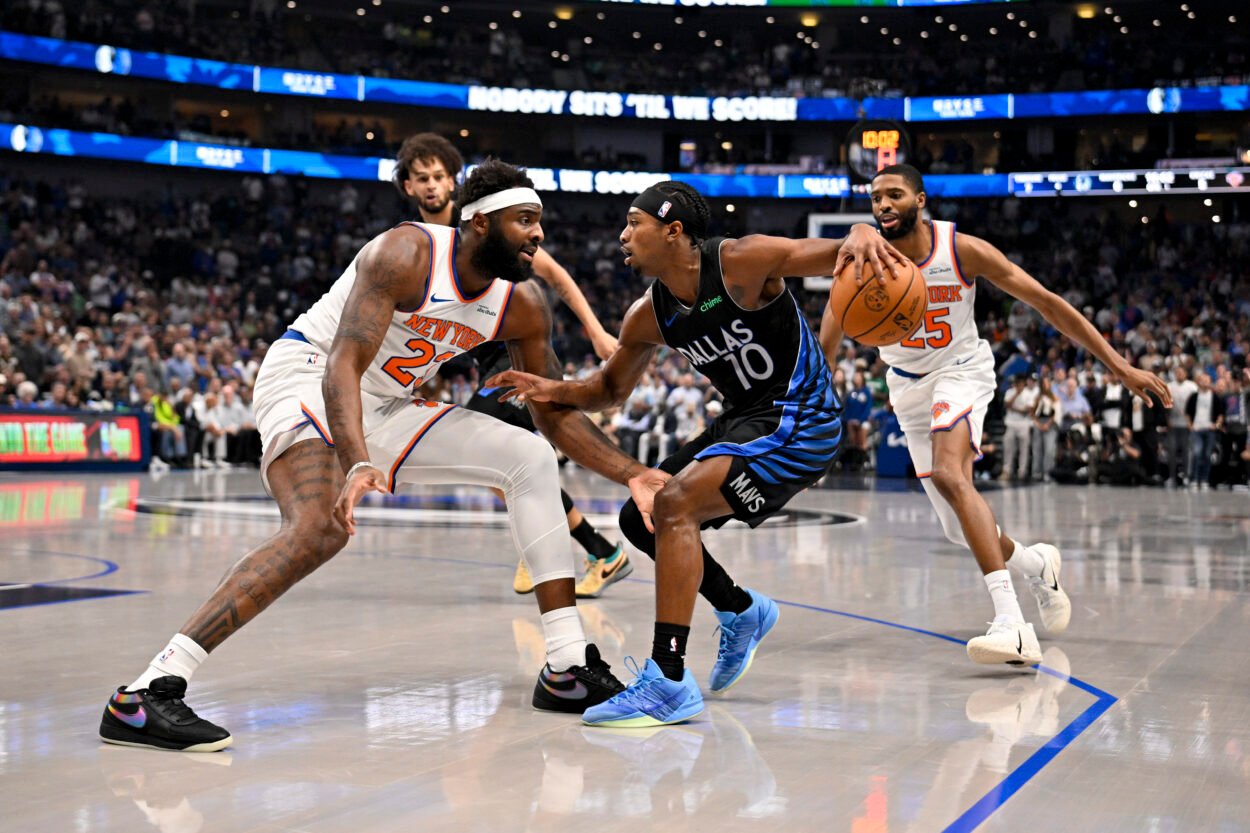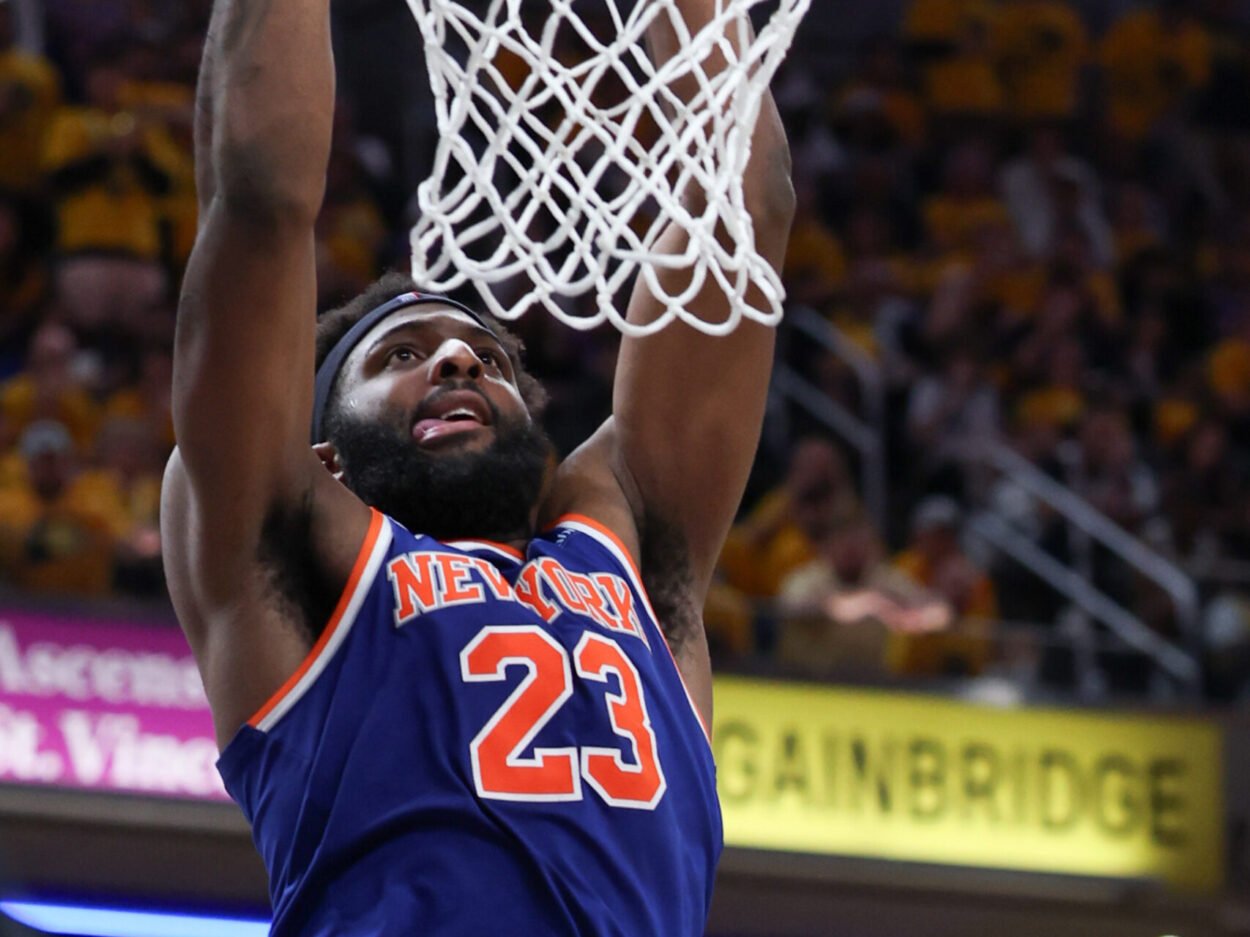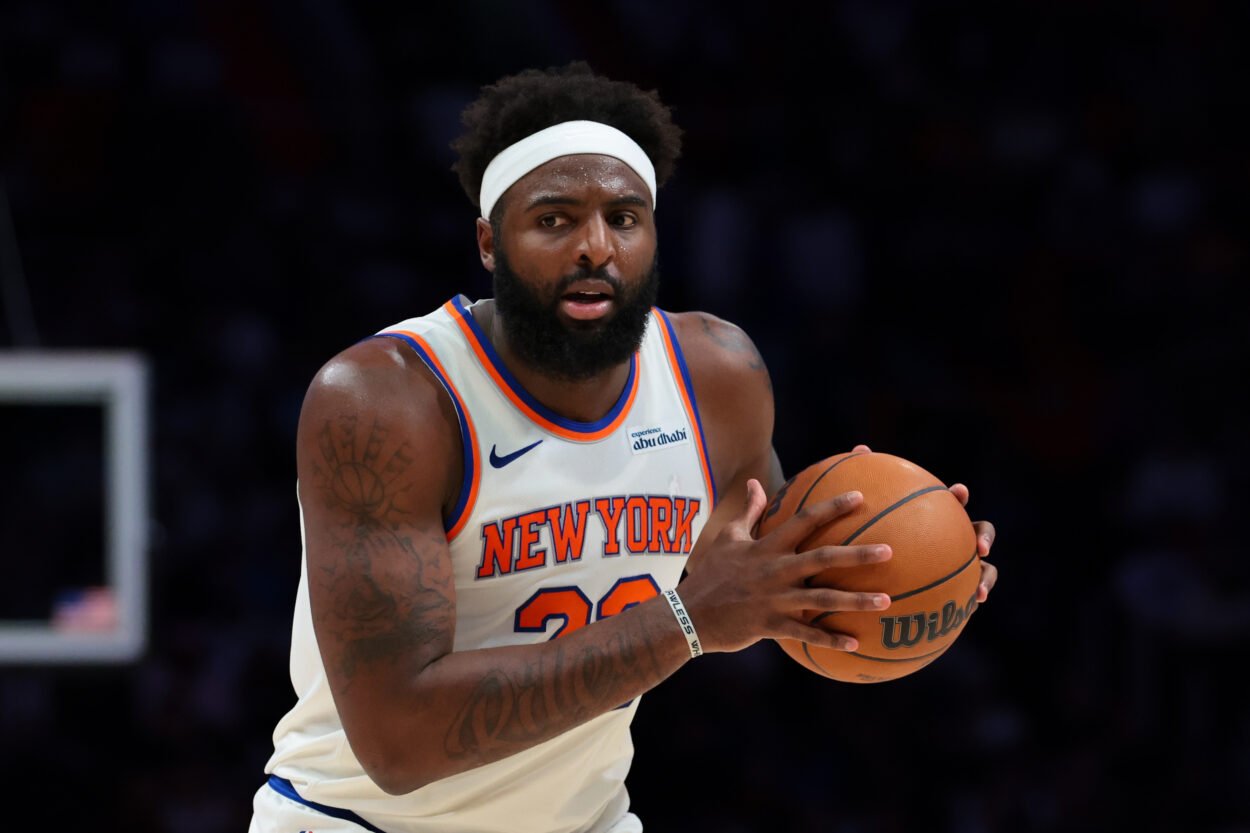
You scan the box score from Wednesday night and your eyes stop at the zero in the points column next to Mitchell Robinson’s name. It looks underwhelming on paper. You might assume he had a quiet night or simply floated through his rotation without making a dent in the game. But anyone who actually watched the New York Knicks dismantle the Charlotte Hornets saw something entirely different. They saw a defensive wrecking ball that completely altered the geometry of the court without needing to toss the ball through the hoop a single time.
Robinson played 17 minutes off the bench and finished with a staggering plus-18 rating. Think about the efficiency required to impact the score that heavily in such a short window. He didn’t score, but he grabbed five rebounds, swatted a shot, and snatched three steals.
Those three steals are the telltale sign that his hips are loose and his engagement is through the roof. He wasn’t just camping in the paint waiting for a layup; he was jumping passing lanes and blowing up pick-and-rolls.

Less is Finally More
For years, the Knicks struggled to find the balance between unleashing Robinson and breaking him. Mike Brown is taking a much different approach than Tom Thibodeaux, managing minutes instead of running players into the ground.
He is averaging just 17.1 minutes per game over his first 10 appearances. In previous seasons, that number might have sparked concern about his conditioning or his standing in the rotation. Now it feels like a masterstroke. By capping his exposure, the Knicks are getting 17 minutes of pure, high-octane intensity. He is sprinting the floor. He is crashing the glass. He isn’t pacing himself for the fourth quarter because he knows his shift is short.
The Contract Year Factor
We cannot ignore the business side of this equation either. Robinson is in the final year of a four-year, $60 million contract. He carries a $13 million salary cap hit this season, and he knows exactly what is at stake. He is playing for his financial future.
That motivation is showing up in the hustle stats. Despite the limited playing time, he is pulling down 7.9 rebounds a night. Even more absurd is the fact that 4.4 of those are coming on the offensive glass. He is generating nearly five extra possessions a game just by outworking everyone else when a shot goes up. He is shooting over 65 percent from the field because he has stopped trying to do too much. He catches lobs, he cleans up misses, and he plays defense.

Saving the Legs for Spring
This strategy isn’t really about surviving November against the Hornets. It is about being viable in June against the Thunder or the Nuggets. The New York Knicks have had their postseason dreams crushed by injuries too many times to count. Robinson has often been the first domino to fall.
If they can keep him in this “super-sub” role, playing under 20 minutes a night while maintaining this level of dominance, they solve two problems at once. They keep his body fresh for the playoffs, and they ensure their second unit has a defensive anchor that terrifies opposing offenses.
There is enormous value in a player who can check in cold and immediately ruin the other team’s offensive flow. Robinson is proving that you don’t need to score 20 points to be the most important player on the floor. You just need to make sure the other team doesn’t score at all. If he stays healthy, this workload management might be the best coaching adjustment the Knicks have made for him in years.
